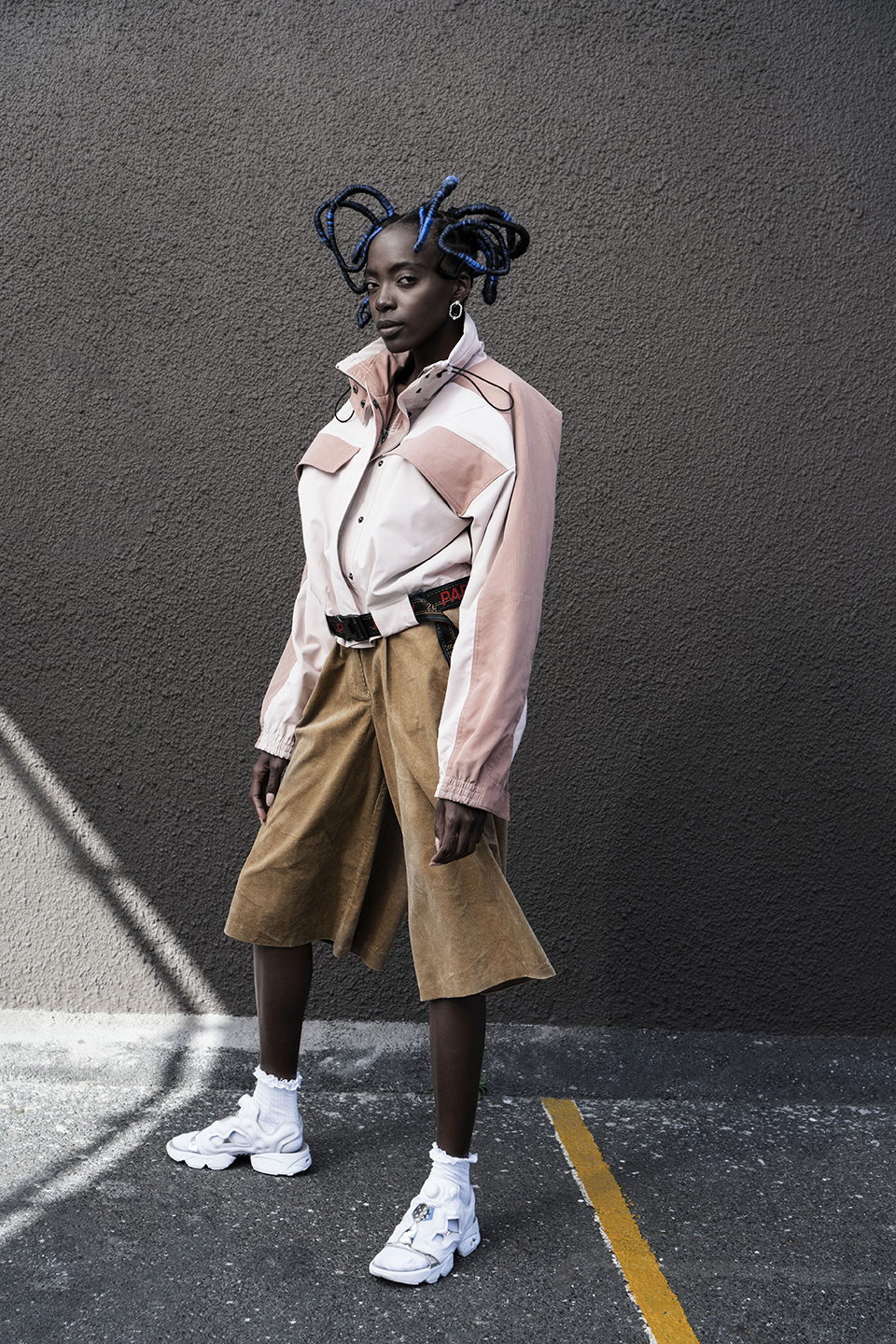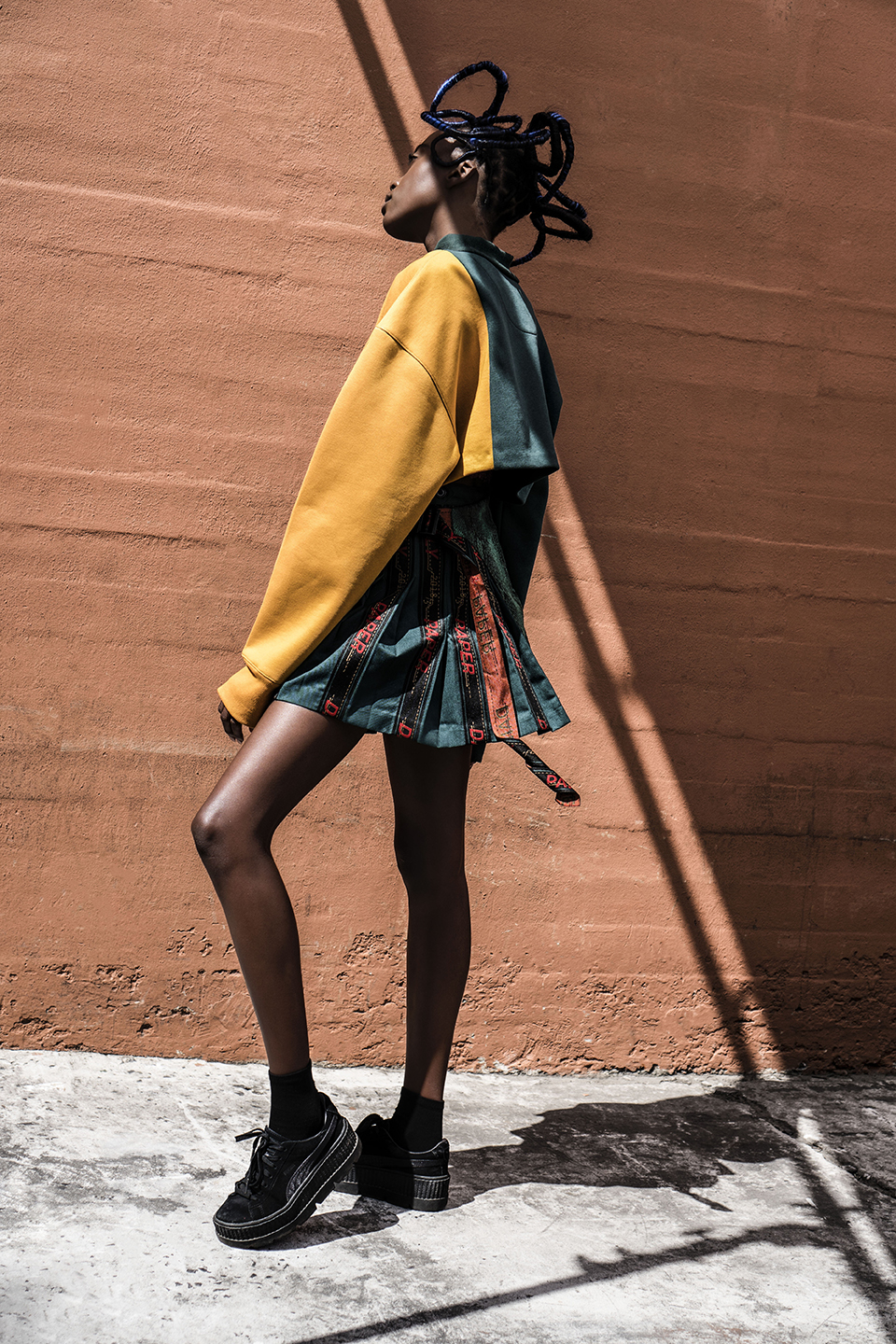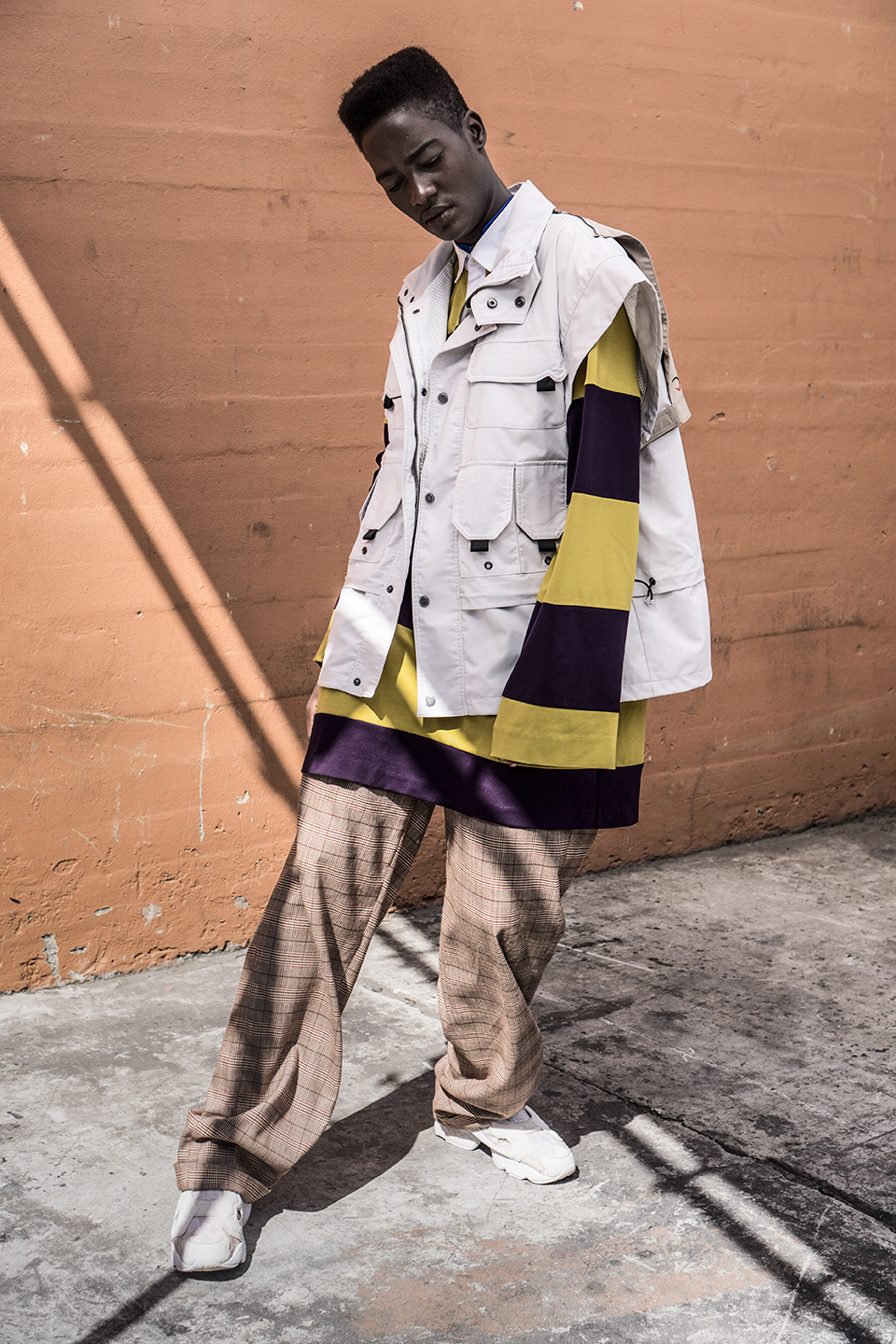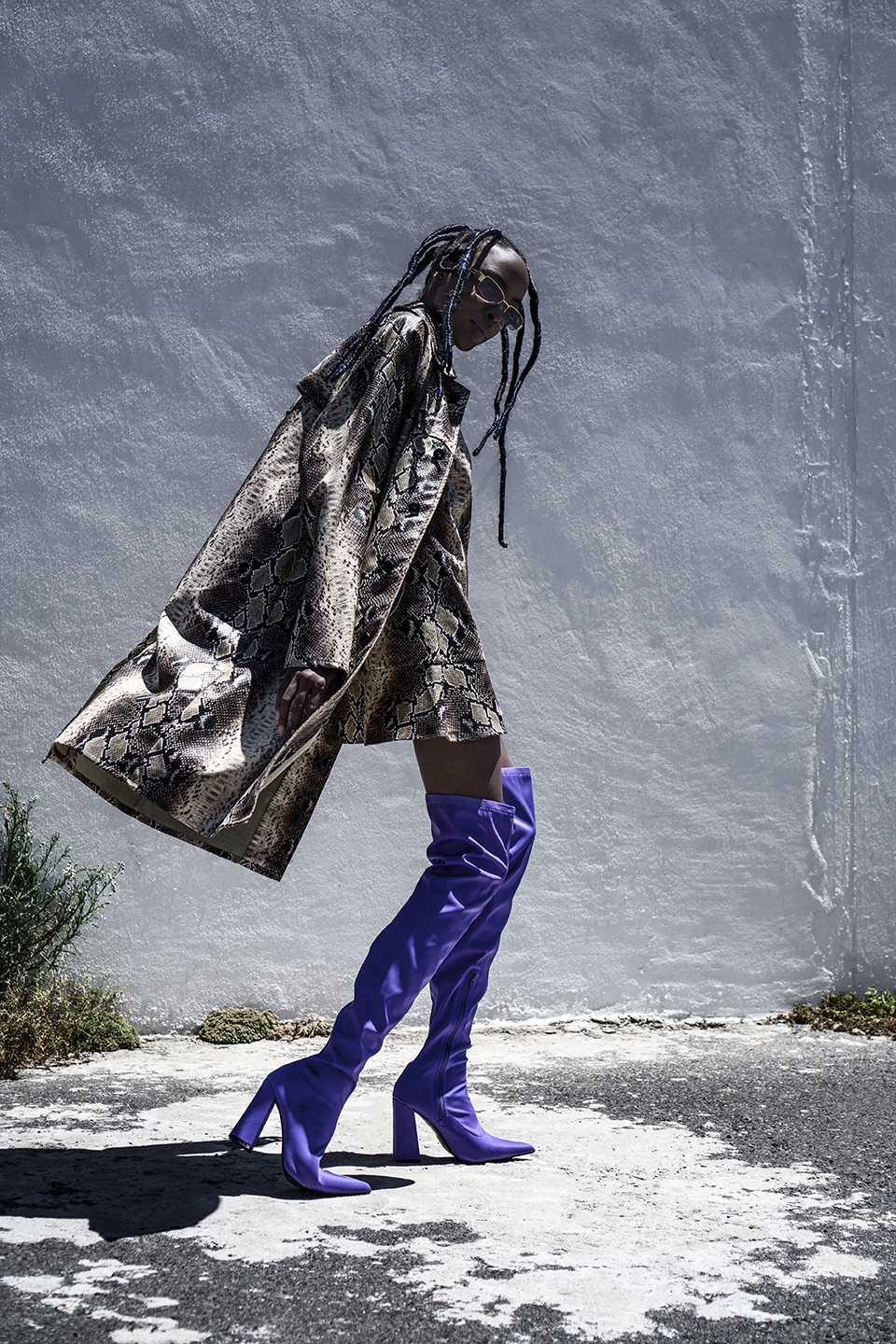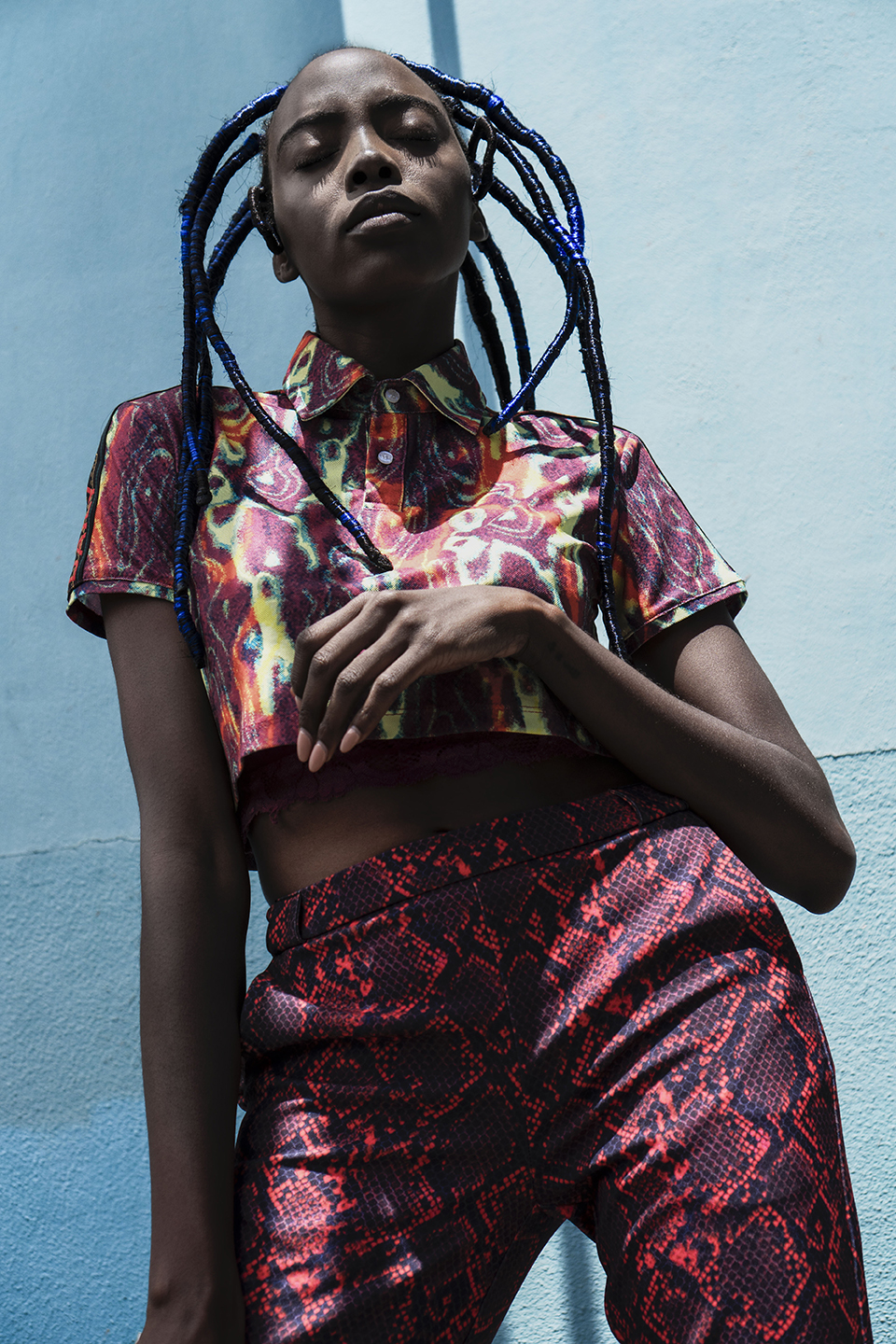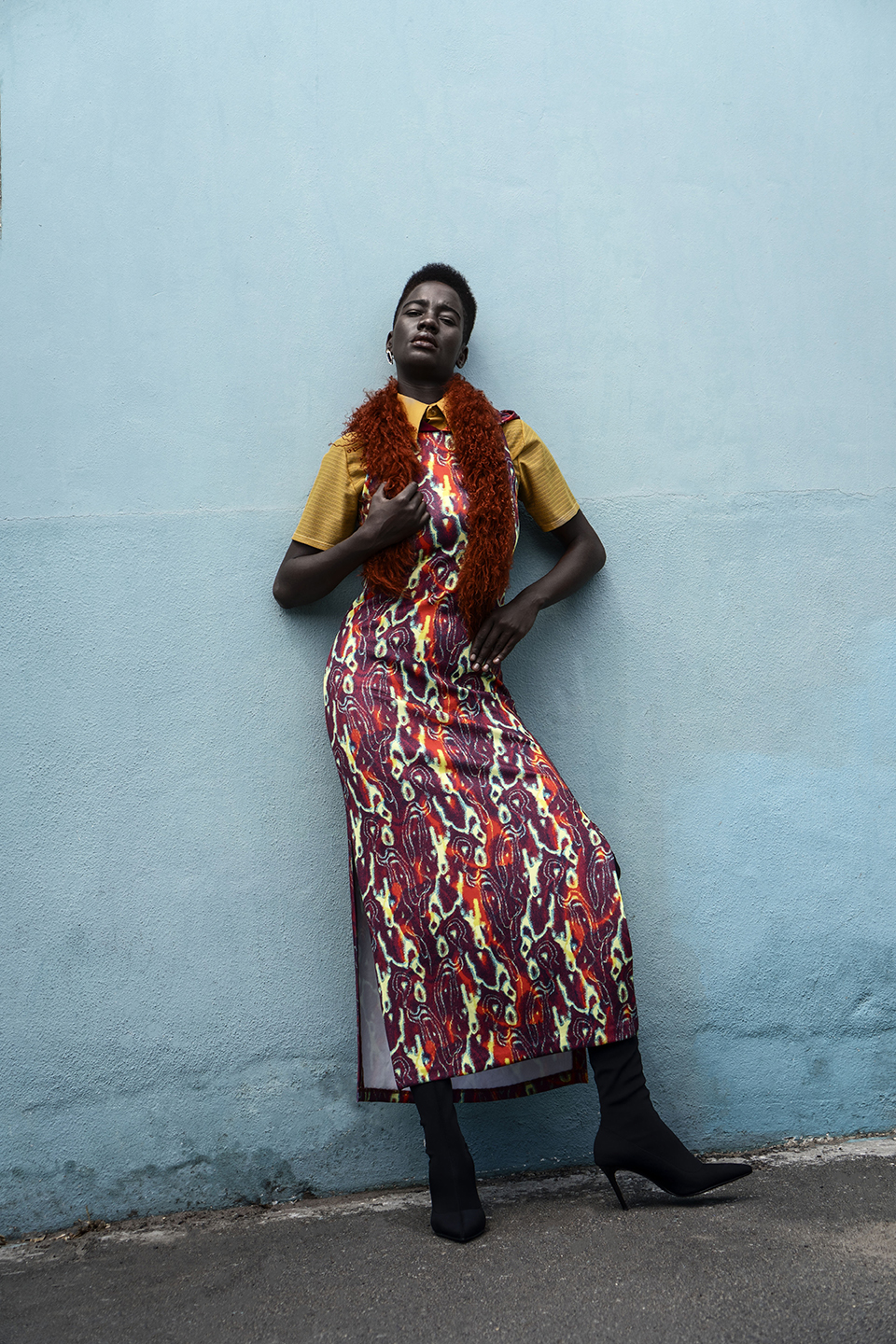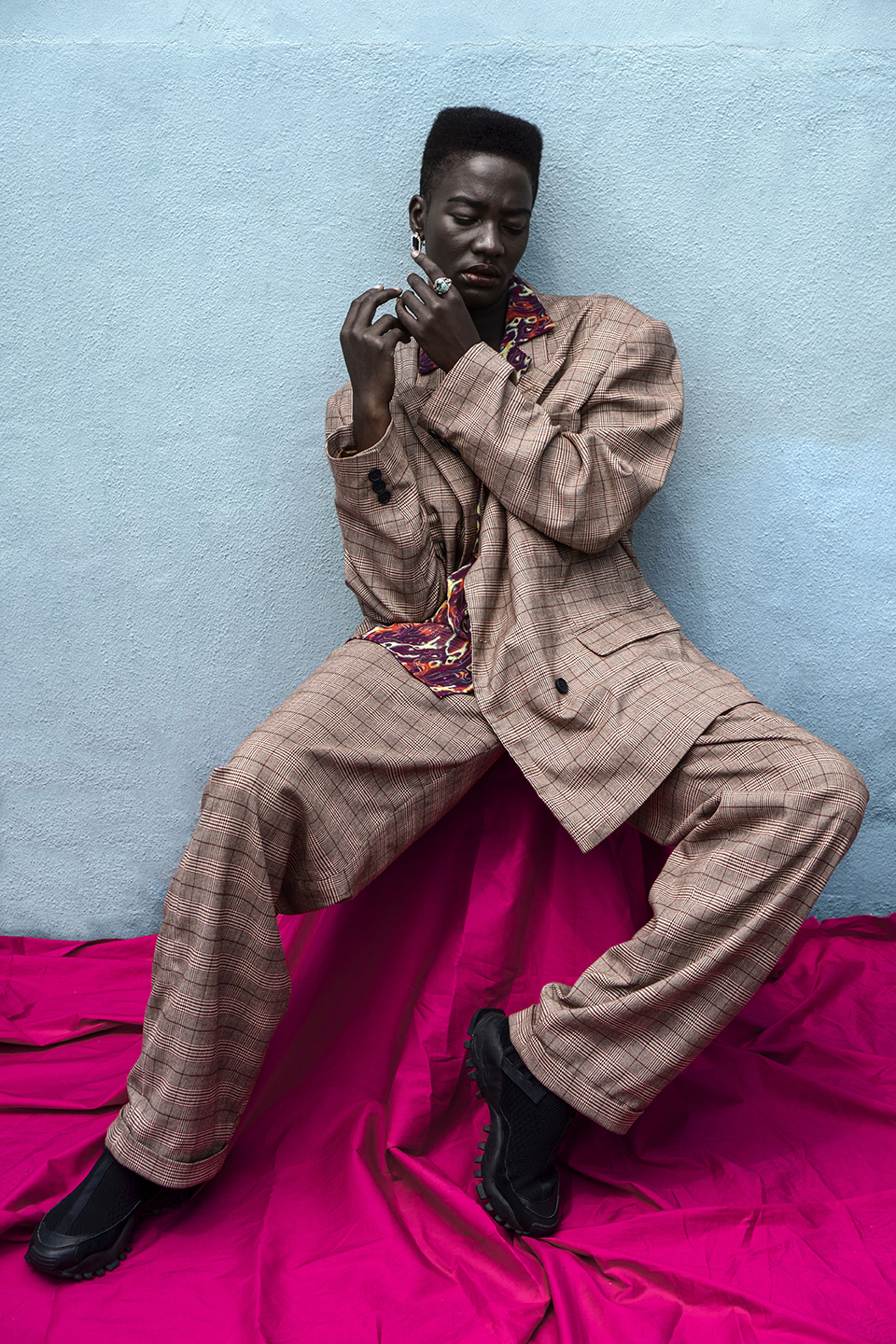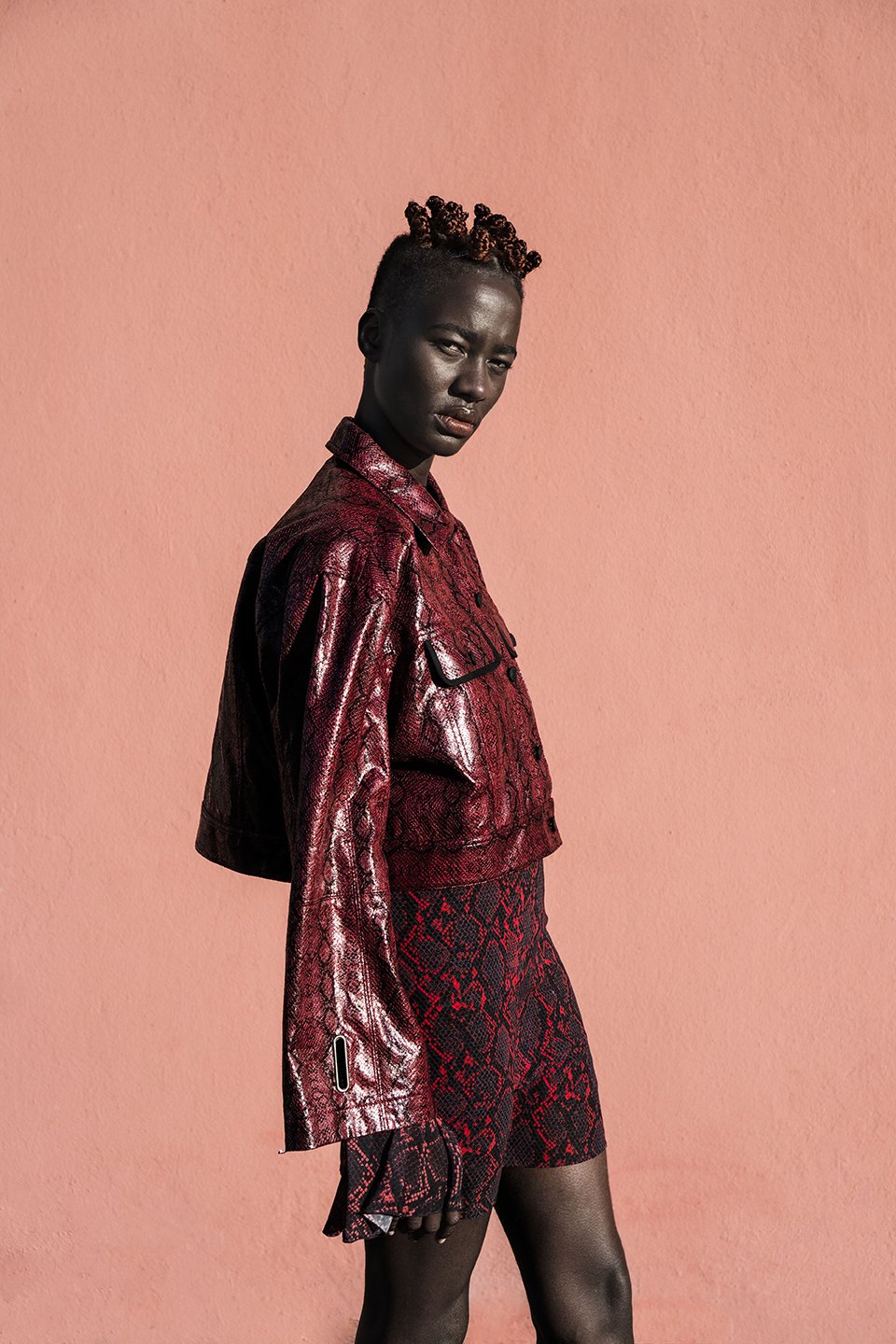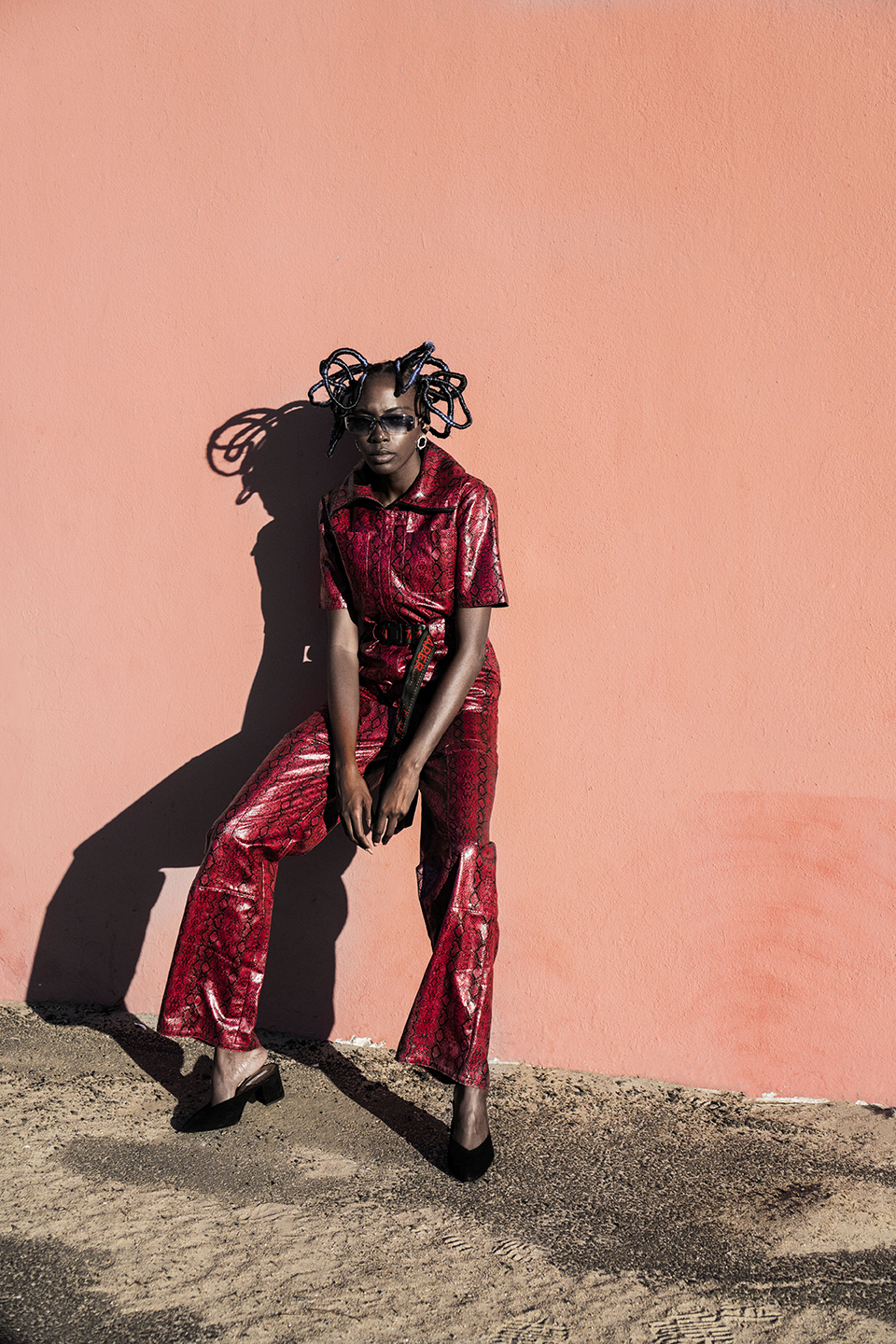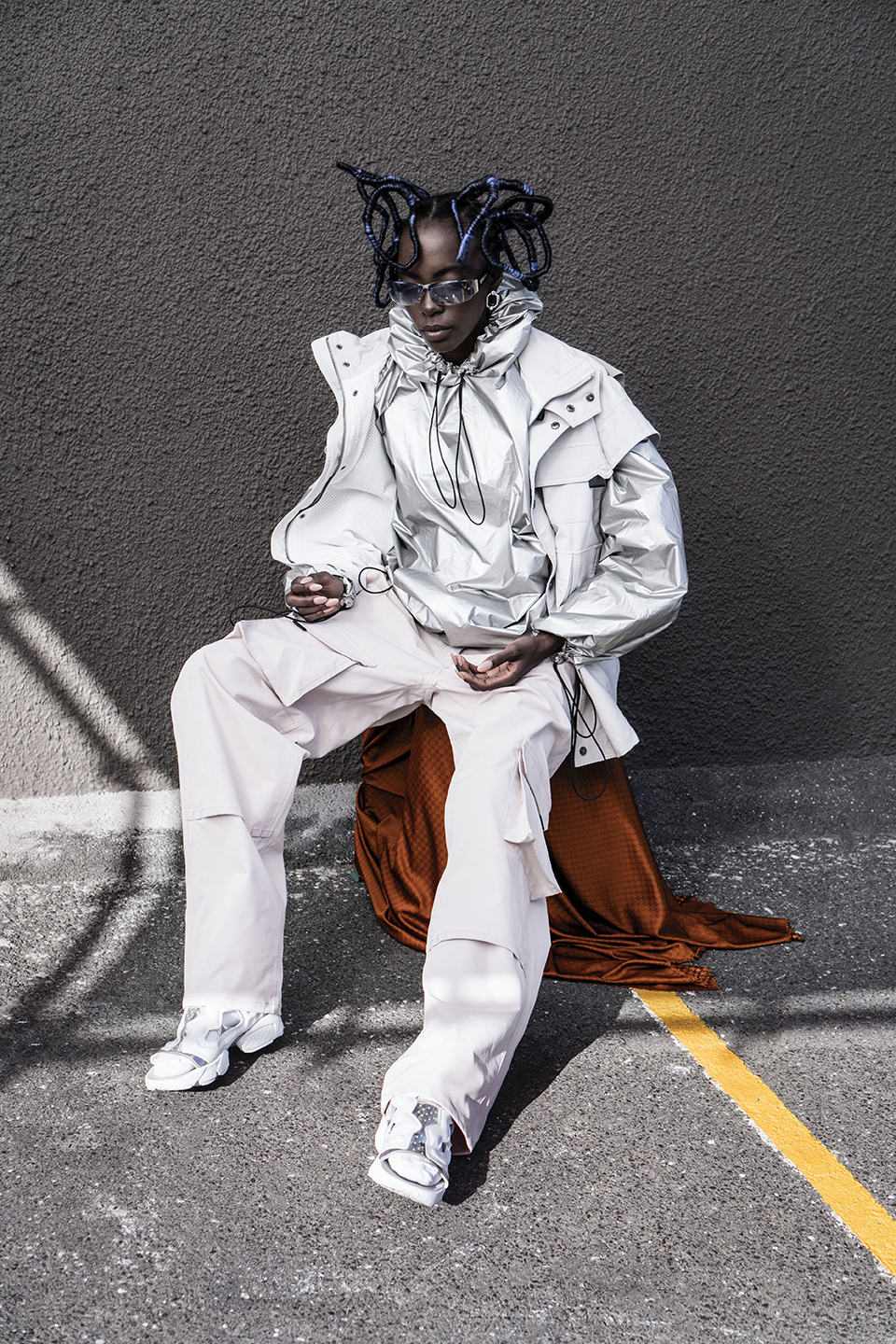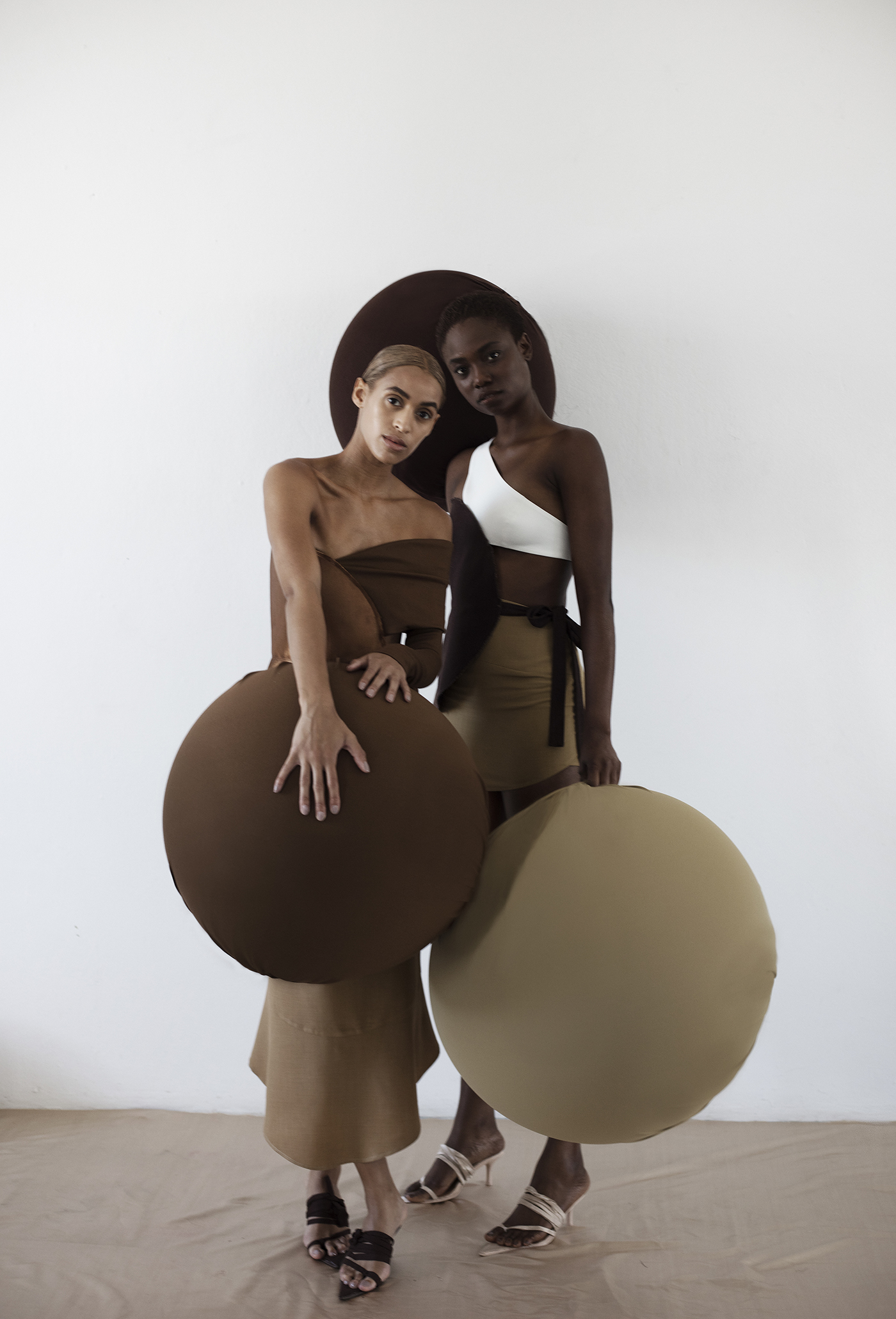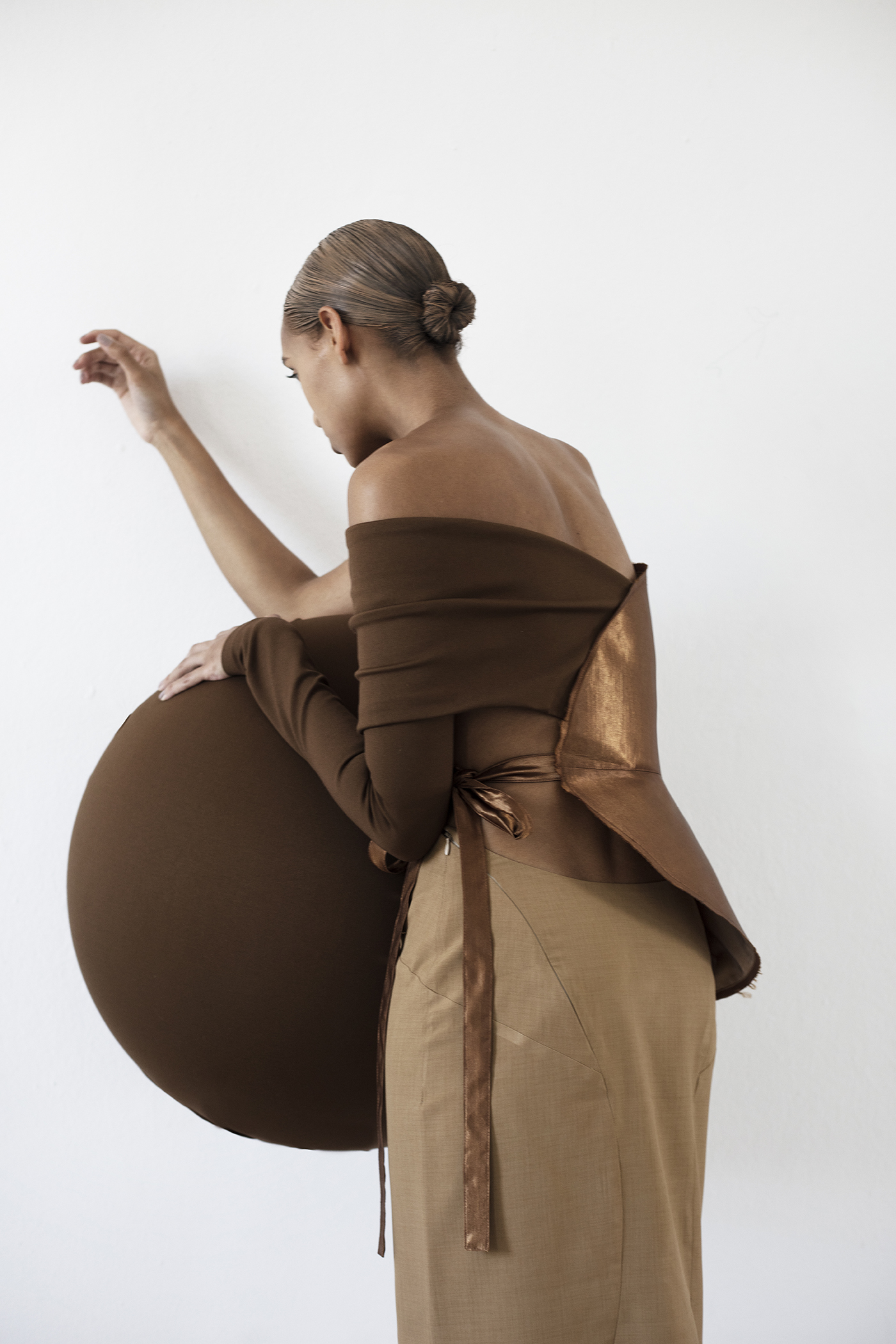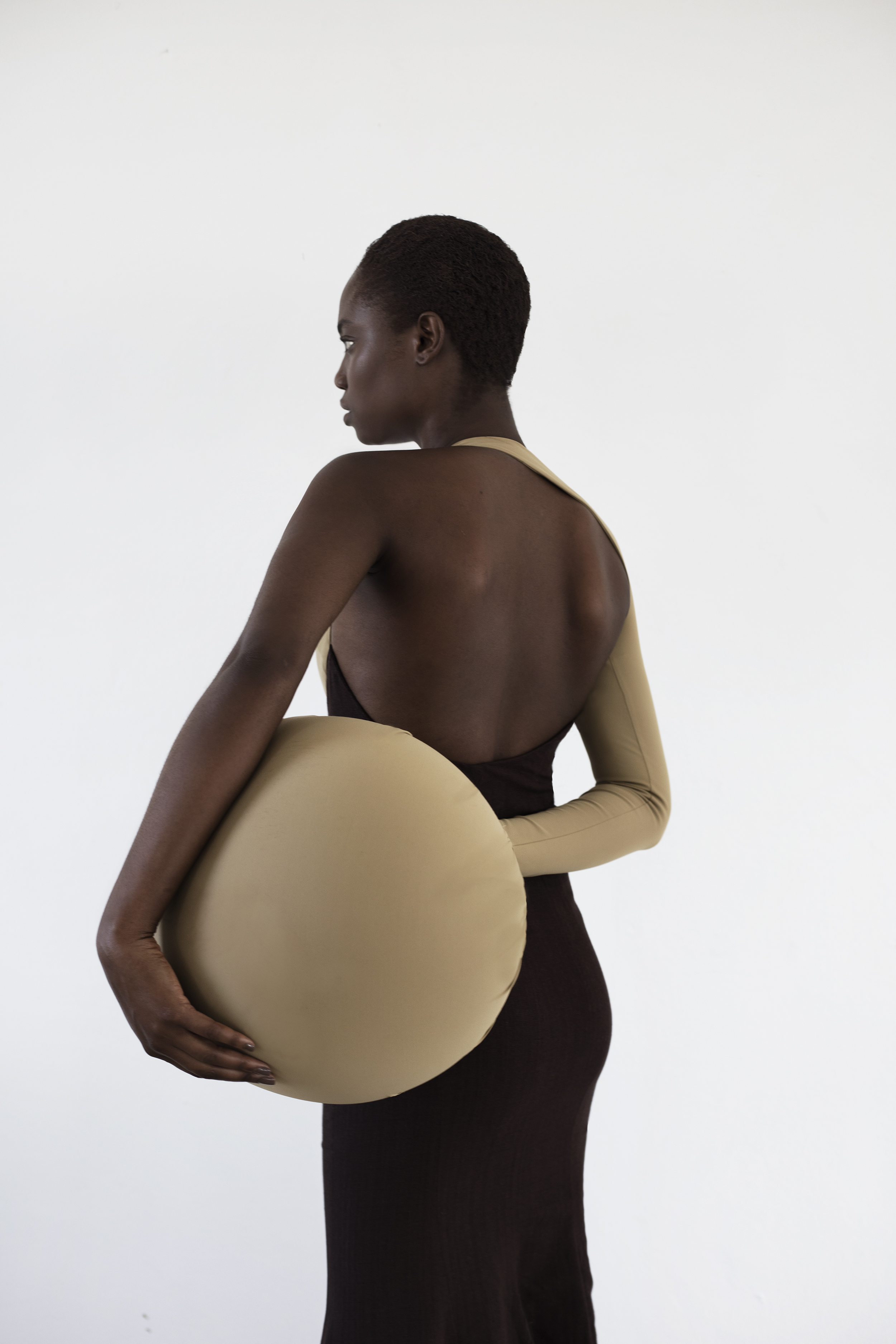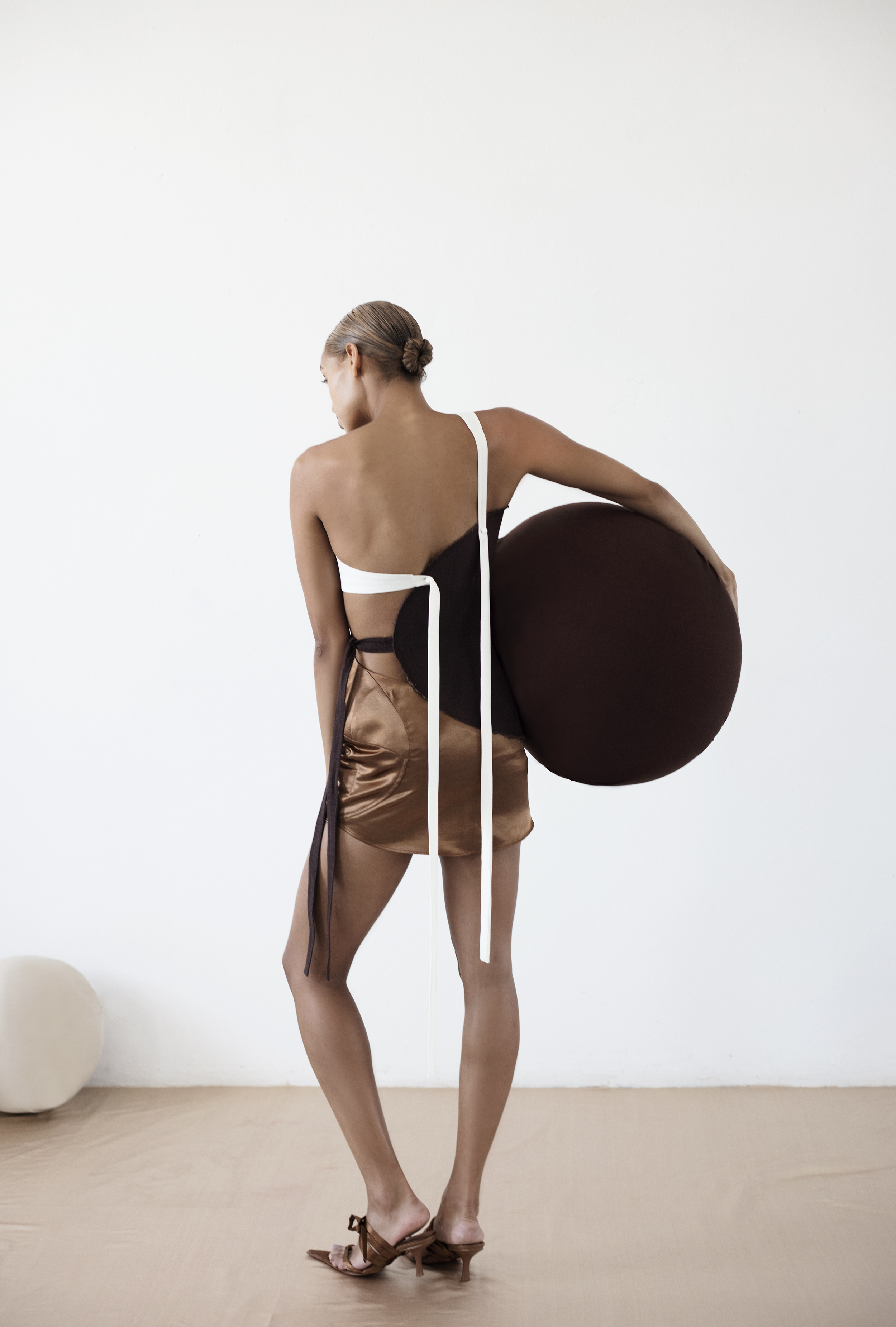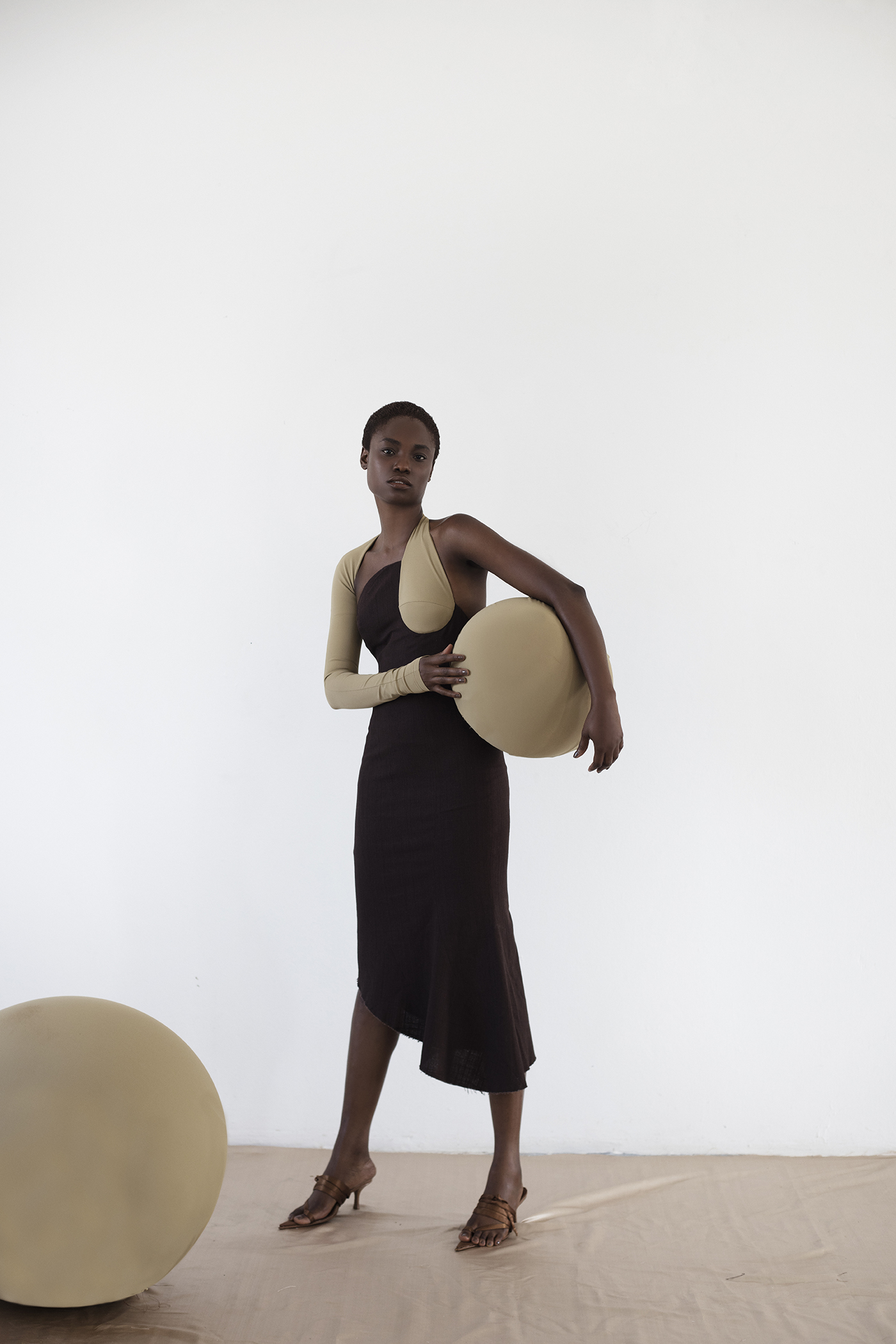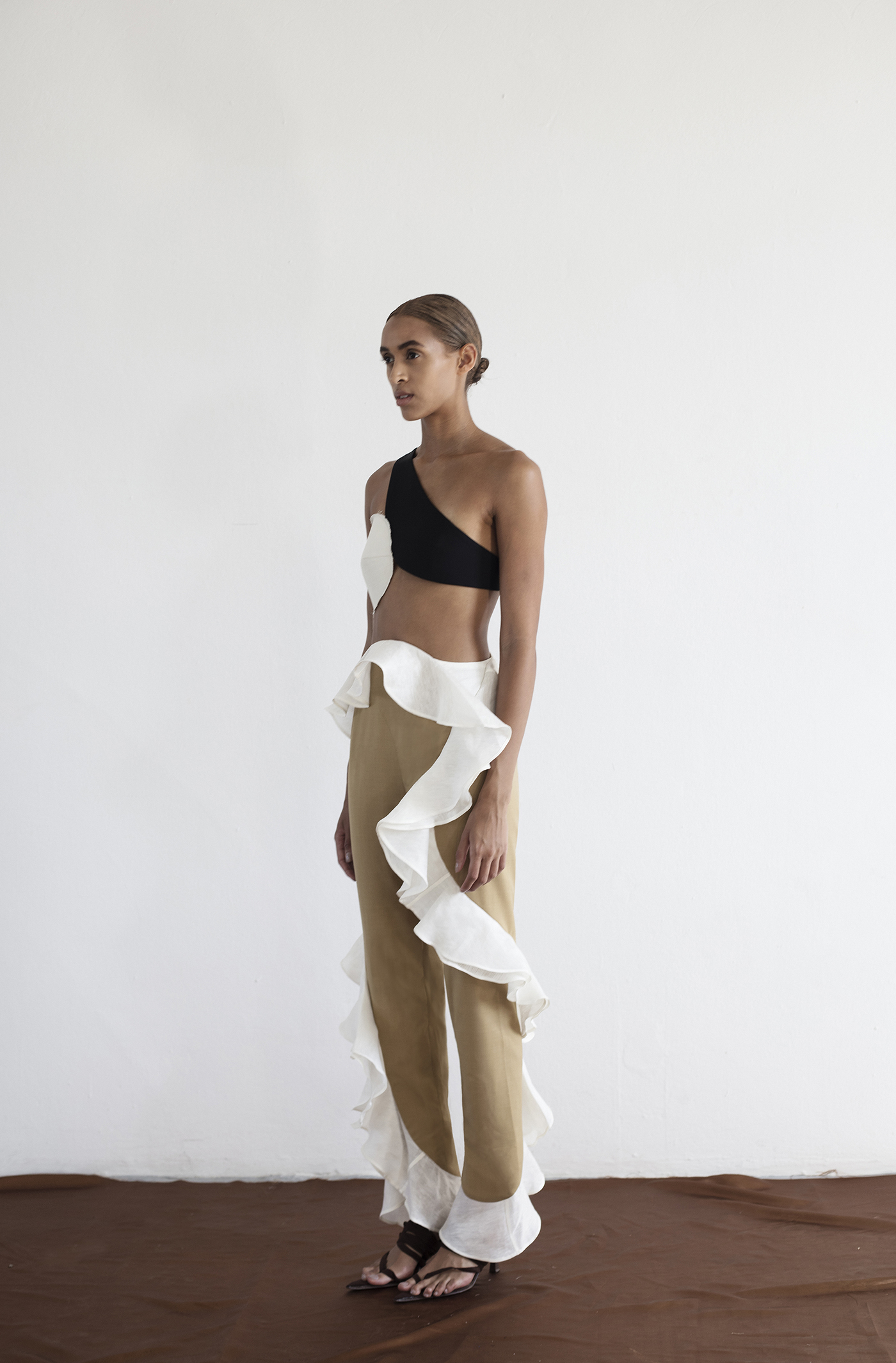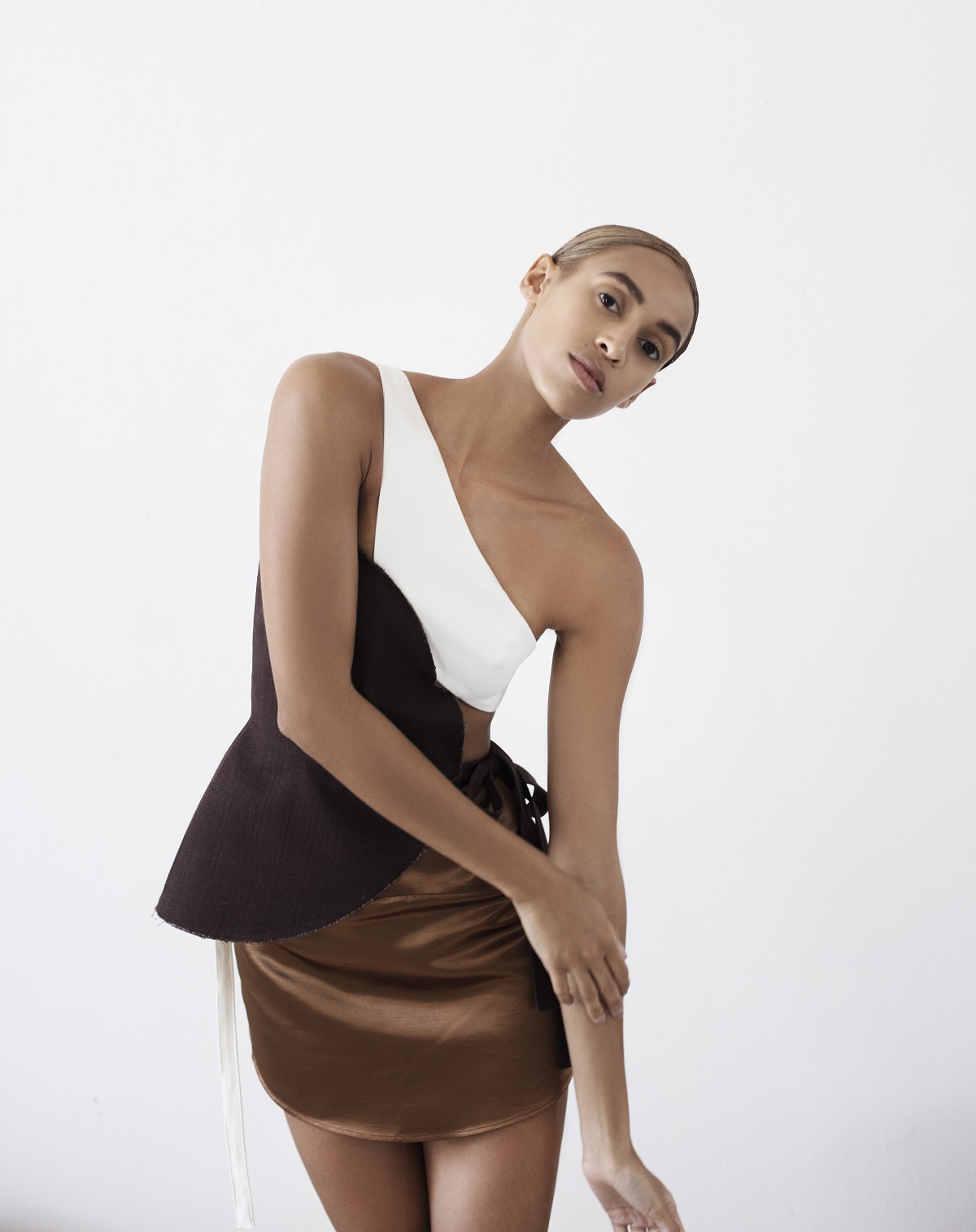The Amsterdam-based lifestyle and streetwear brand Daily Paper present their third women’s collection as part of their “Transcend Borders” Spring/Summer 18 campaign. Founded by Jefferson Osei, Hussein Suleiman and Abderrahmane Trabsini, who have their roots in Ghana, Somalia and Morocco, aim for every collection to have an element that pays homage to their cultural homes.
In an interview with the Head of Design at Daily Paper, Berivan Cemal, she explained that this collection was built on the idea of transcending expectations. The idea came from a conversation she had with Jefferson, Hussein and Abderrahmane about their travels and global connections. Related to this was a larger discussion about why we seek relationships with people across the globe and how it is possible to identify with people from different countries.

Conceptually, the collection also makes a comment on how bodies are governed through the use of passports and documents that are necessary for the policing of borders. “We challenge a system that aims to keep us within boxes and borders.” The collection tells a story that is influenced by globalization, with the intention of putting an end to ideas like racism and truly embracing multiculturalism. The focus on eroding borders has always been part of the Daily Paper DNA, but it was with the SS18 collection that they engaged in this conversation intensely. “We want the youth to talk to each other. If a conversation arises from someone noticing a print on a t-shirt then so be it. We realize that these kids are the future and they love to express their identity through clothing.”
Oversized silhouettes, taking the form of trousers, blazers, pullovers and a statement snake-skin set, exhibits a revolving activewear theme with tracksuits and printed shirts all making noteworthy appearances.
The editorial plays on afrofuturistic aesthetics, where shadows create a cryptic, other-worldly mood, visually tapping into the idea of transcending borders. Reflecting on the shoot, Berivan stated that she loves “when something looks beautiful and glamorous from afar and up close you discover small elements of surprise. We wanted it to seem like it was shot in a studio but reality, it’s a beautiful colored wall outside, taking advantage of Africa’s beautiful lighting. I wanted to create something only possible in South Africa, something only feasible with a team of amazing creative locals.”
Check out the Daily Paper website to get a hold of this new collection.
Credits
Photography: Jamal Nxedlana
Art Direction: Jamal Nxedlana & Berivan Cemal
Styling: Berivan Cemal & Jamal Nxedlana
Hair: Yonela Makoba
Make Up: Nuzhah Jacobs
Produced by: Bubblegumclub & Berivan Cemal
Photography Assistant: Andrew Aichison
Styling Assistant: Sarah Hugo-Hamman
Models: Ideline Akimana and Gina Jeanz
